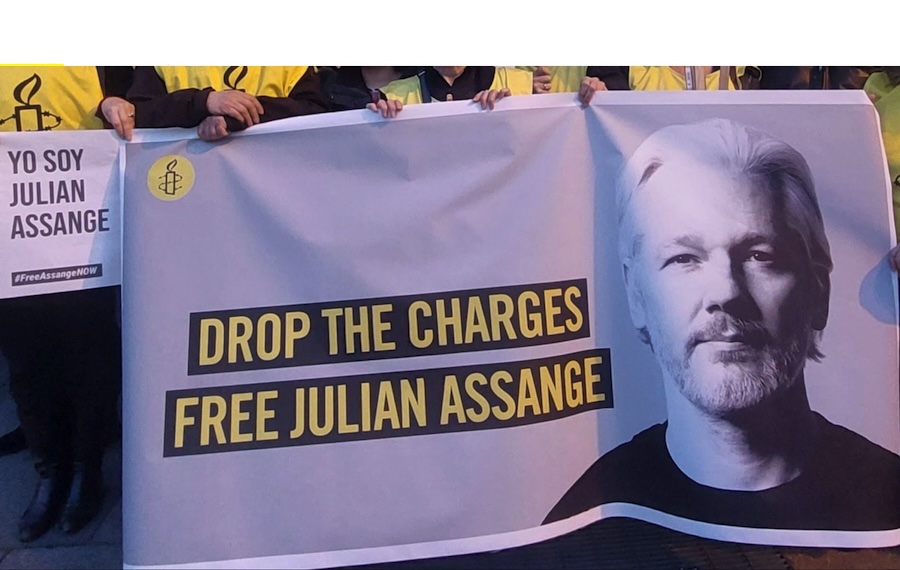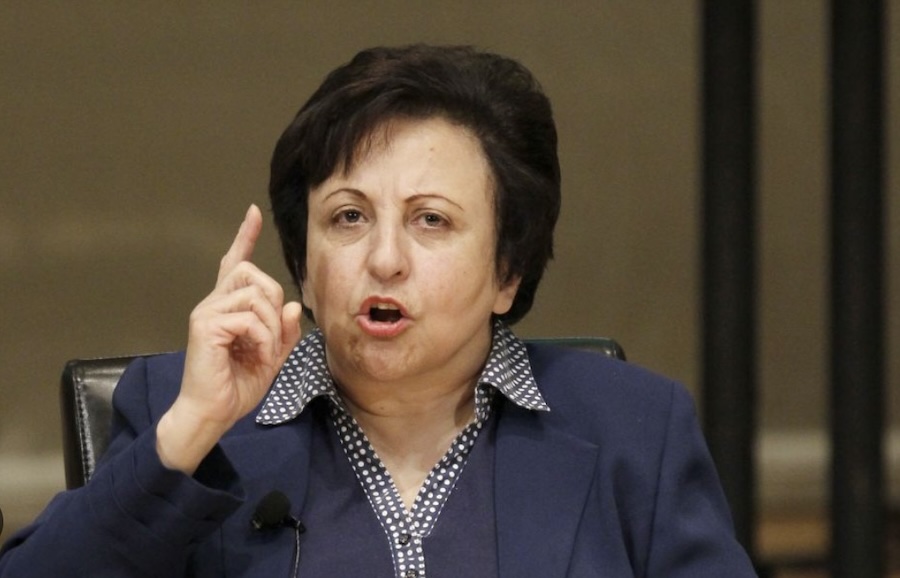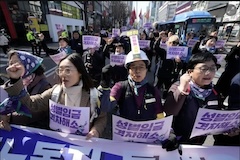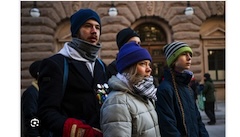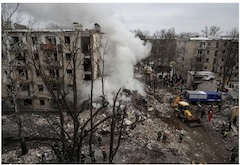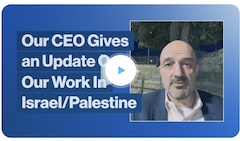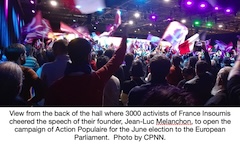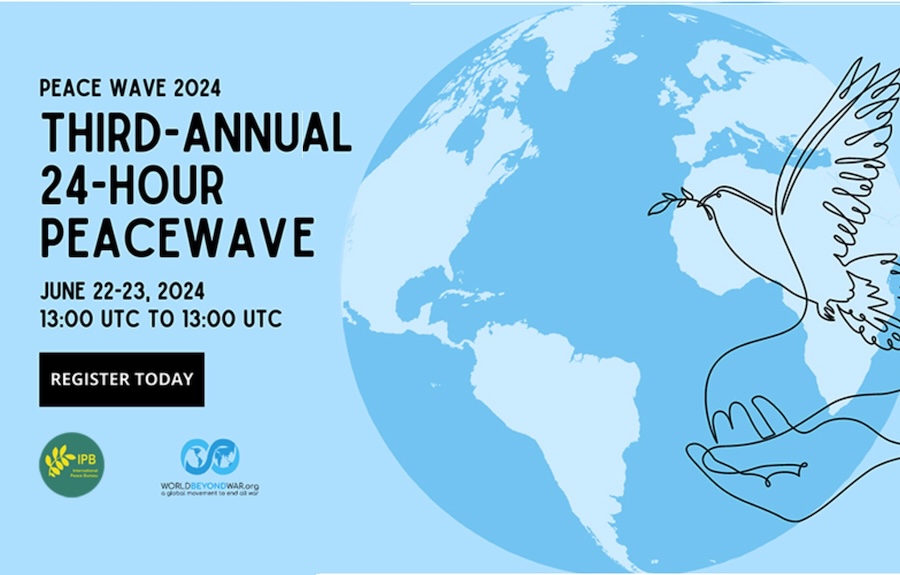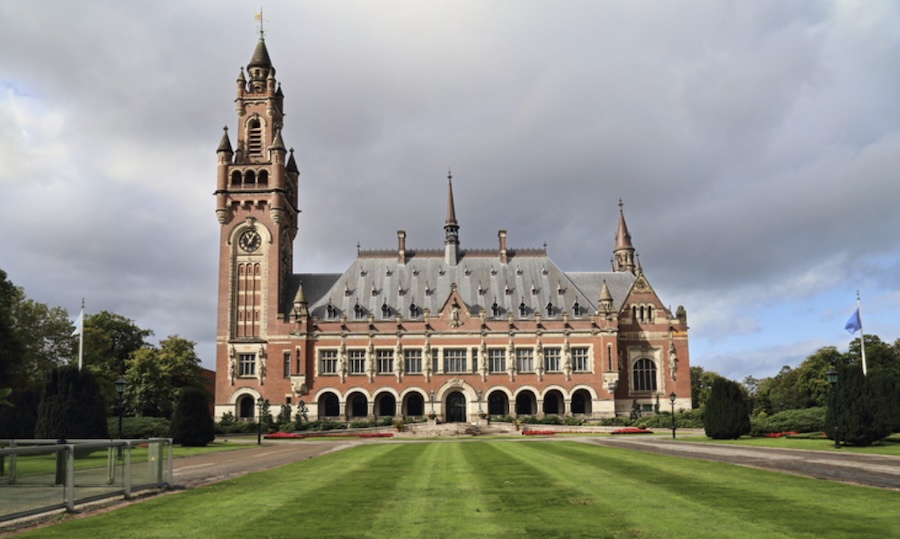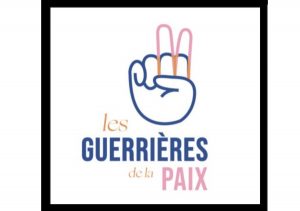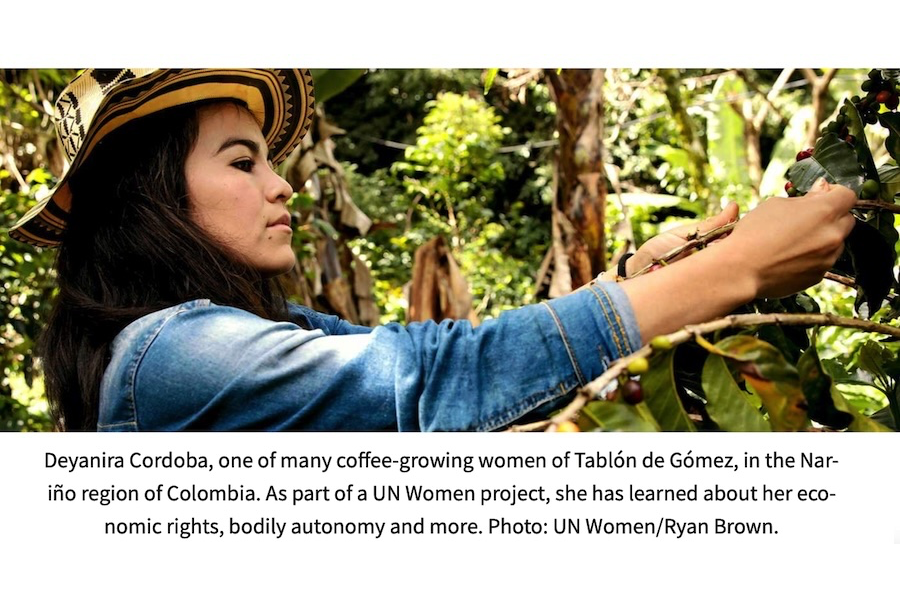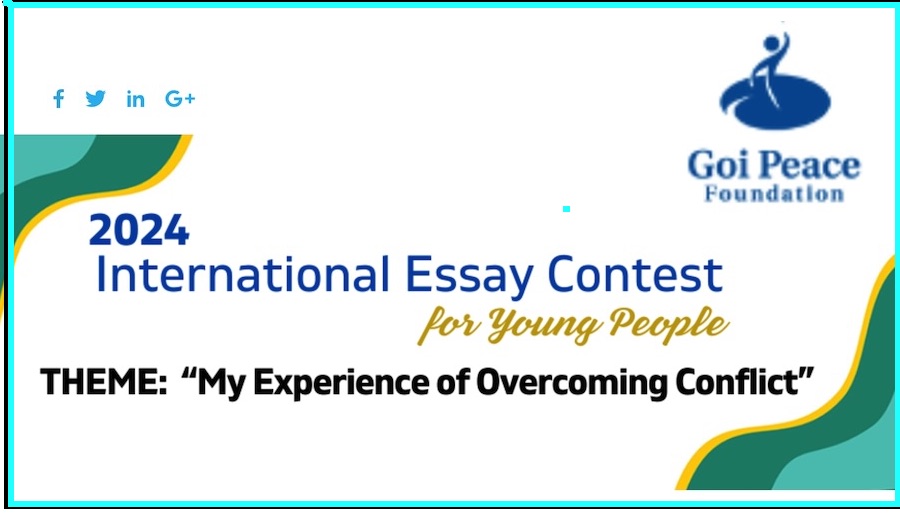. . WOMEN’S EQUALITY . .
An article from the Women’s International League for Peace and Freedom
On International Women’s Day: Why challenging the narrative is more important than ever
In this insightful Q&A with Maha Batran, WILPF’s MEL & Partnerships Advisor, she delves into the heart of the Palestinian struggle, exploring its historical roots, the ongoing challenges faced by Palestinians, and the importance of challenging prevailing narratives. Through candid reflections and expert analysis, she uncovers the gendered impact of occupation, the nuances of Palestinian resistance, and the global solidarity movements demanding justice and accountability.
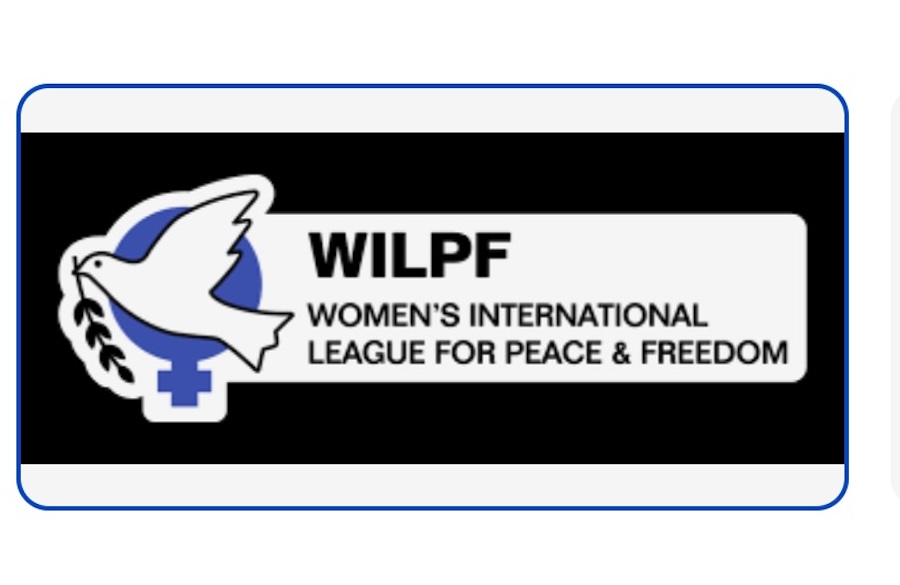
What are the root causes of all this strouggle? And how are women affected?
In 1948 the State of Israel was created marking the end of the British Mandate of Palestine. 1948 year is also known as Nakba where armed Jewish/Zionist groups ethnically cleansed Palestinians in parts of the land. They not only killed tens of thousands of Palestinians but also forcefully displaced more than 700,000 Palestinians out of their homes into the West Bank, Gaza and the neighbouring countries. My father’s family was kicked out from their home in Jaffa and settled in Gaza in 1948. Israel occupied the rest of historic Palestine in 1967, to include East Jerusalem, Gaza, and the West Bank where I now live.
For decades, UN General Assembly resolutions were passed protecting the rights of the Palestinians and demanding Israel stop its colonial project and oppression. This includes UN Resolution 194, on the protection of the Palestinian refugees’ right to return to their homes and live in peace with their neighbours, or receive compensation. Those resolutions remain on paper. I personally remain a refugee in Palestine without the right to visit, let alone settle in Jaffa. Meanwhile any Jew from around the world can come (and be financed and encouraged) to settle in Jaffa.
The Palestinian Liberation Organization (internationally-recognised representative of the Palestinian people) and the State of Israel signed a peace treaty, the Oslo Accords in 1993. The agreement stipulated a transitional five-year period for a Palestinian Interim Self-Government arrangement to end with a permanent arrangement where Palestinians have the right to self-determination and peace, living side-by-side with Israel. This transitional period ended with no handing of power to the Palestinians over the West Bank and Gaza as prescribed by the Accords. On the contrary, increased Israeli control, land grab and settlers inside the West Bank grew exponentially. The peace negotiations failed. I have seen it with my own eyes, the settlement on the hill across from our home was just expanding, the checkpoints between town and cities in the West Bank multiplied, and we had absolutely no sovereignty, no control over the land, the water resources, the air, the borders, building permits, nothing. Palestinians couldn’t accept this. Who would have?
We have witnessed daily violations of human rights, international law and crimes against humanity and war crimes towards Palestinians. These have been recorded by International, Palestinian and Israeli human rights organisations and commissions in the West Bank, Gaza and Israel, including deeming the occupation illegal under international law (and now an advisory opinion is being sought about the issue at the International Court of Justice) and exposing the crime of a system of apartheid by the State of Israel.
The Israeli policies that victimise and discriminate against the Palestinian people have a clear gendered impact as they isolate Palestinian women, impoverish them, limit their rights and freedoms and inhibit their participation in the public political, cultural, social and economic spheres. The occupation and apartheid state policies have huge effects on women’s legal, social, educational, economic and political status, as well as their priorities, access to services especially for girls and women victims of gender-based violence, and their available options for resistance.
Learn more
For further resources on the history of Palestine and Israel visit the UN page.
Other resources can be found here.
You can read more about the impact of occupation on Palestinian women WILPF’s analysis.
Also this by Palestinian women’s organisations.
This statement by UN experts on the recent human rights violations by Israel towards Palestinian girls and women.
And what has the situation been in Gaza until the current escalation of violence?
The situation for Palestinians has been deteriorating over time, and Palestinians living in Gaza have been under a blockade since 2007. Actually, I haven’t been able to visit Gaza since 1999 because the Israeli state wouldn’t give me a permit. So technically, the siege has been enforced since then. And Gaza’s living conditions have worsened over the past decades. Gazans and activists have tried to resist in non-violent means. The Freedom Flotillas launched by international solidarity groups which use international waters to try and cross to Gaza in boats. The Great March of Return towards the Gazan border with Israel where refugees (who account for 70% of the population in Gaza) marched every Friday towards the borders in a symbolic move to break the siege of Gaza and exercise their right to return to their land were specific examples of initiatives to try and break the blockade of Gaza and bring world attention to the situation in Gaza. However, the international and political response to these attempts was little. Military groups in Gaza launched rocket attacks from Gaza onto neighbouring Israeli territories, and Israel launched six large military assaults (2008-2009, 2012, 2014, 2021, 2022, and 2023) with thousands killed. But the siege persisted.
The current escalation of violence, the continued blockade, the failure to deliver on commitments in the peace process has been enabled through the longtime impunity of the Israeli army and officials committing crime after crime with no accountability or consequences. Gaza was often described as a ticking bomb, with over two million people living in what was often described as an open-air prison, and continuously under attack.
WILPF’s campaigning has called on allies to challenge the narrative around the conflict. Why is that important and what does this mean?
Western media frames the cause of the Palestinians as a complicated conflict, with two-people not being able to live side by side and co-exist. It also uses language of supremacy and dehumanisation. A narrative that fails to acknowledge the history of the land and its people, the humanity and equality of Palestinians and the dynamics and drivers of the violence and injustice. This narrative has thus far and will certainly fail to produce effective strategies to address the situation. This is why it is important that we reframe the narrative of the conflict and name practices and dynamics by their proper names and put them in the right context.
Historically, but also increasingly with the latest events, Palestinians have been dehumanised with Western media passively reporting on their suffering (Israelis are often reported as being “killed” while Palestinians are reported “having died” and often blamed for their own death), so that they are portrayed as less important human beings and more “killable”. This language of supremacy, and “God providing this land to God’s chosen people” has been long heard from Israeli officials and supporters; it is also the foundation of the Zionist project. The“birth-right” project where any Jew is supported (financially and logistically) to visit Israel and settlements in the West Bank and East Jerusalem, and settle there is just one example of how the colonial project, in the name of the “right of the Jewish people to the land”, is justified and defended through narrative. Palestinian refugees who have been kicked out of their land when the State of Israel was created, have been denied the same “right”. WILPF and others have been challenging this narrative.
(Article continued in right column)
(Click here for a version in French.)
Questions related to this article:
Do women have a special role to play in the peace movement?
Presenting the Palestinian side of the Middle East, Is it important for a culture of peace?
(Article continued from left column)
We often hear that other oppressed peoples may have the right cause but are going out demanding it in the ‘wrong way’. This is faced by Palestinians too.
It’s important to start by emphasising that people’s right to resist occupation is protected by the Additional Protocol I to the Geneva Conventions of 1949, and a dozen UN resolutions, including UNGA Resolution 37/43 which stated the legitimacy of the struggle for independence, and liberation from foreign occupation by all available means, including armed struggle. This means that Palestinians have the right to resist the illegal Israeli occupation, with all available means. Armed struggle needs to also abide by international law (which for example, prohibits the targeting of civilians). It is also important to also acknowledge that labelling a person or a group for resisting occupation or oppression by “terrorist” or their acts as “terrorist acts” has been a long established practice, some of these labels were later revised such as the cases with Yasser Arafat led violent attacks and later was awarded the Nobel Peace Prize.Nelson Mandela was considered one of the greatest peacemakers after successfully fighting apartheid with violent and non-violent means. Those who have the power to have their views accepted and create the narrative also have the power to label and mislabel.
People ask “Why is there no Mandela in Palestine?” How do you respond to those kinds of critiques of Palestinian resistance and leadership?
We Palestinians have peacefully resisted Israel’s occupation and human rights abuse through countless persistent initiatives ranging from Youth movements, union organising, arts and culture, popular marches, and political initiatives. For example, the Youth Against Settlements which is most active in Hebron in the West Bank, where Israeli settlers are slowly taking over Palestinian homes in the heart of the city protected by soldiers; the Great March of Return; the Freedom Flotillas; the Boycott Divestment and Sanctions Movement which is replicated from the South African anti-apartheid movement, and which was endorsed by WILPF in a resolution in 2011; and most recently, global movement around the world calling for a ceasefire in Gaza but also to dismantle the apartheid system and end the occupation.
However, the clamp down on any such attempts at resistance was violent and almost inevitable (see for example, Amnesty International’s Trigger Happy Report). The chance that leaders survive Israel’s systematic and widespread targeting of peaceful resistance is virtually nonexistent. Israel has a long history of the use of collective punishment and excessive force including the assassination of Palestinian activists, journalists, poets, politicians and systematically penalised others, including children, through measures such as the illegal prolonged administrative detention denying Palestinians basic judicial guarantees, such as the case of academic Ahmad Qatamesh.
For further resources on the Palestinian right to resist, visit the legal analysis and the FAQs that WILPF contributed to on Gaza and international law.
There have been many countries and institutions that have cracked down on and even criminalised pro-Palestinian activism in the name of fighting anti-semitism. Does the resistance of Palestinians, Israelis and internationals to Israeli (State and settlers) oppression of Palestinians amount to anti-semitism?
No. There is a difference between standing up against human rights violations by the Israeli army and settlers, and anti-semitism.
Anti-semitism is not acceptable. However, advocating for Palestinian rights does not make you anti-semitic. If you believe in equality and justice, you are not anti-semitic. Palestinians and supporters of Palestinian rights recognise that there are root causes for all the violence (which is the continuation of the Israeli colonial project of dispossession and the apartheid system of oppression) and this needs to be addressed.
The Israeli state and pro-Israeli propaganda have tried to frame and taint supporters and advocates of Palestinian rights as anti-semitic so that they are immediately suppressed on false moral ground. Many Jewish groups and activists are resisting the pro-Israeli efforts to falsely equate critiques of Israel with anti-semitism and are seeking to disentangle Jewish identity and liberation from Zionism and the Israeli state.
These include Jewish Israelis and Israeli organisations exposing and standing up against Israeli State violations of human rights and international law, including B’tselem, Yesh Din, and HaMoked. There are also Jewish Israeli individuals, such as authors and historians Illan Pappe and Avi Shlaim, who have dedicated their work to help expose the ethnic cleansing of Palestine and the Zionist project. There is Amira Hass, the Israeli journalist and daughter of Holocaust survivors living in the West Bank amongst Palestinians also writing to expose Israeli violations especially in the West Bank.
Jewish voices around the world who oppose Israel’s actions against Palestinians, including Jewish Voice for Peace (visit JVP FAQs for further information about their stands particularly on questions around not equating the Jewish identity of the group with zionism and anti-semitism), and individuals, such as jewish intellectuals and authors Naomi Klein and Judith Butler.
There is a difference between being anti-semitic, and standing up for justice, accountability, equality and freedom. One should be able to speak the truth, fight for the protection of human rights, an oppression-free, colonial-free and apartheid-free world without fear.
There have been different kinds of solidarity and peace efforts over the years by civil society and peace activists. What kind of solidarity is helpful to the Palestinians and the Palestinian cause?
Not all peacebuilding efforts have been helpful to Palestinians and the Palestinian cause. Approaches to peacebuilding that buy into a false narrative of ‘two peoples that can’t get along’ will inevitably produce ineffective and even harmful results. Solidarity and peace activists must differentiate between coexistence and co-resistance, between solidarity and normalisation, between exposing the violations of human rights and international law and between overstepping those in favour of “a peace solution between two people”.
Coexistence, which is usually promoted through activities such as camps or dialogue sessions between Israelis and Palestinians, is about normalising the relationship between the oppressor and the oppressed. Normalisation activities are often referred to as the “colonisation of the mind” where the oppressor-oppressed relationship and status quo are seen as normal, with some cosmetic improvements. These activities proliferated during the Oslo period (1994-1999), but because the root causes were not addressed, they failed. And while some people, and some self-proclaimed feminists, support normalisation activities, these are not accepted by the majority of Palestinians, will remain in the margins of the real struggle, and will not bring justice.
Co-resistance, on the other hand, acknowledges that the oppressor and the oppressed are not on equal footing, and that history, particularly Israel’s foundation through the ethnic cleansing of Palestine, is well recognised. It demands the recognition and assertion of the inalienable rights of Palestinians, including the right to return.
The BDS has set very clear definitions and guidelines for anti-normalisation activities. They also have tailored guidelines for the different sectors and groups. These should always be consulted with.
Final word?
This conflict, our conflict is about a settler-colonial state enforcing a military occupation and an apartheid regime. The world has witnessed a state commit a livestreamed genocide. Many of their leaders are complicit, along with the international mechanisms that have failed to stop it. In response, they have risen. This movement has inspired the government of South Africa to bravely take Israel to the World Court for the Crime of Genocide.
This global movement is demanding accountability from all complicit governments, institutions, and corporations. The movement is growing and trying to shake the world order today. Gazans have lost so much themselves, but the world sees Gaza as a global front against the rule of oppression, colonialism, and tyranny, so they act in solidarity with Gazans and for justice for all including themselves.
– – – – – –
If you wish to make a comment on this article, you may write to coordinator@cpnn-world.org with the title “Comment on (name of article)” and we will put your comment on line. Because of the flood of spam, we have discontinued the direct application of comments.
